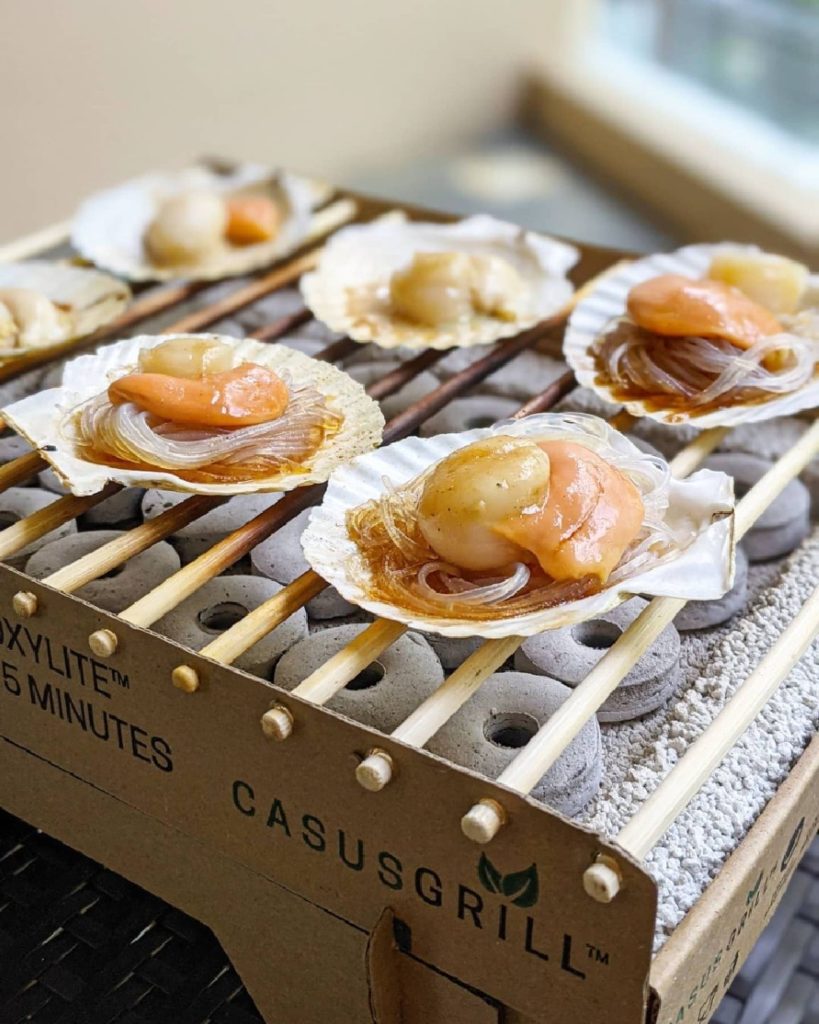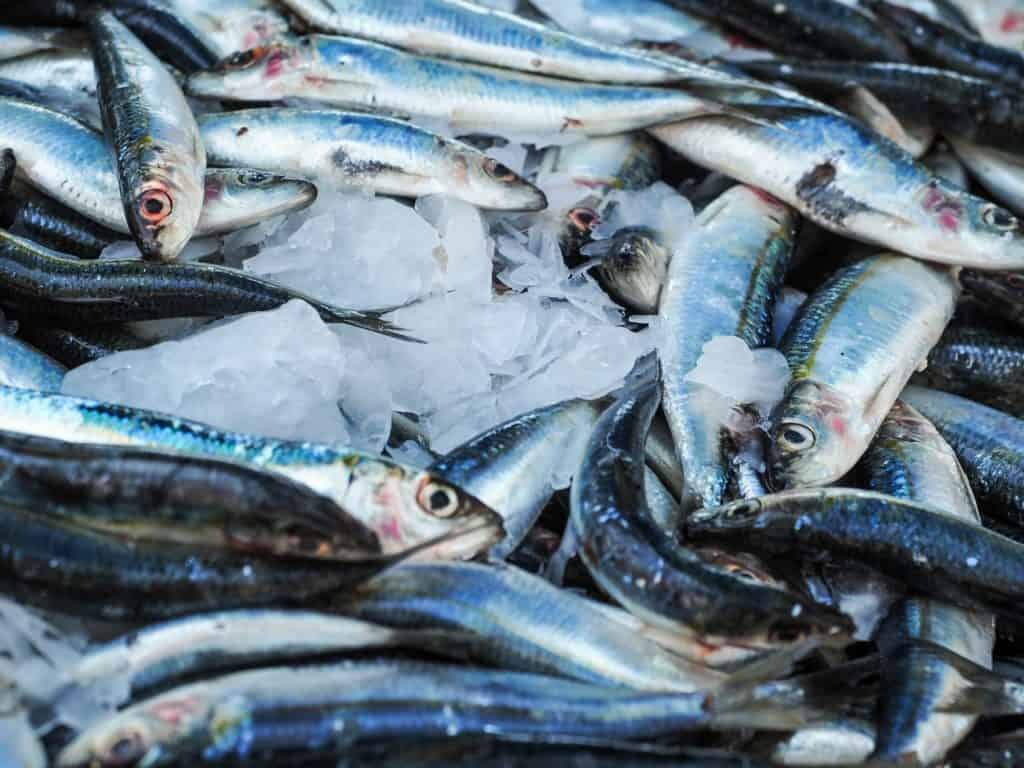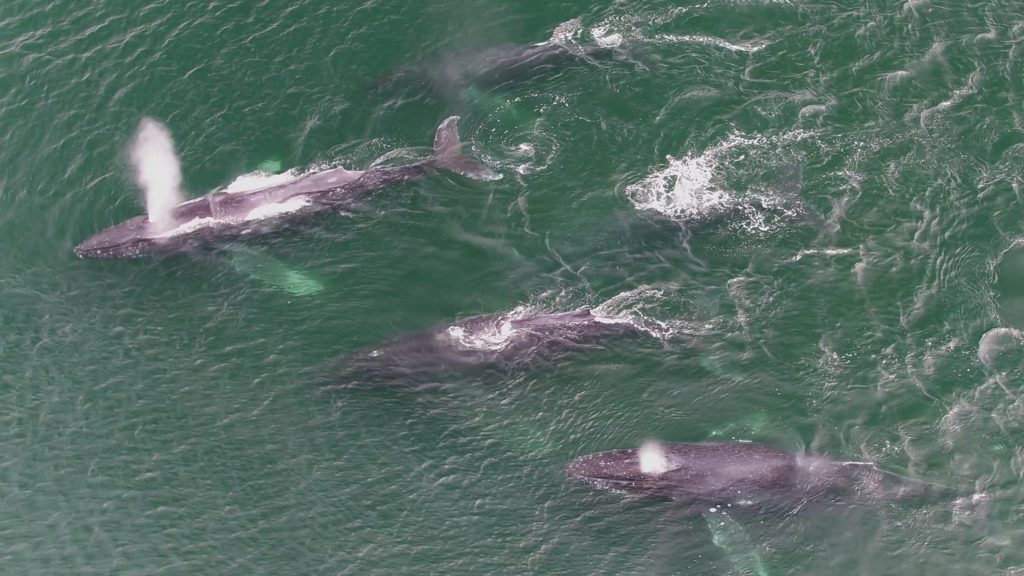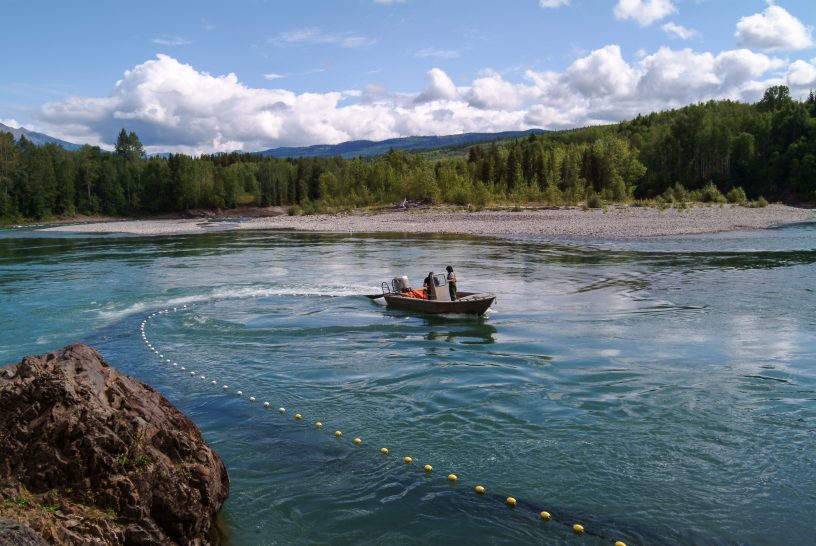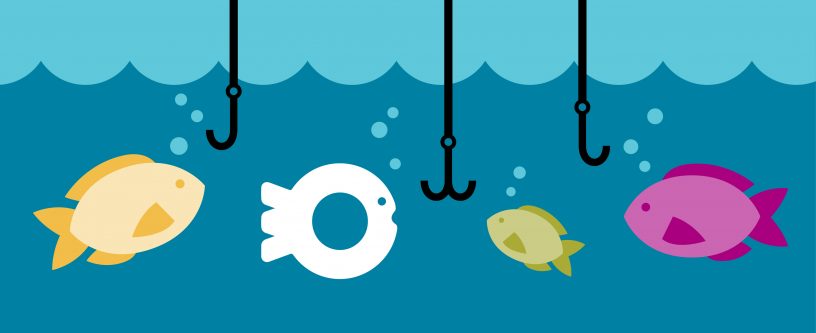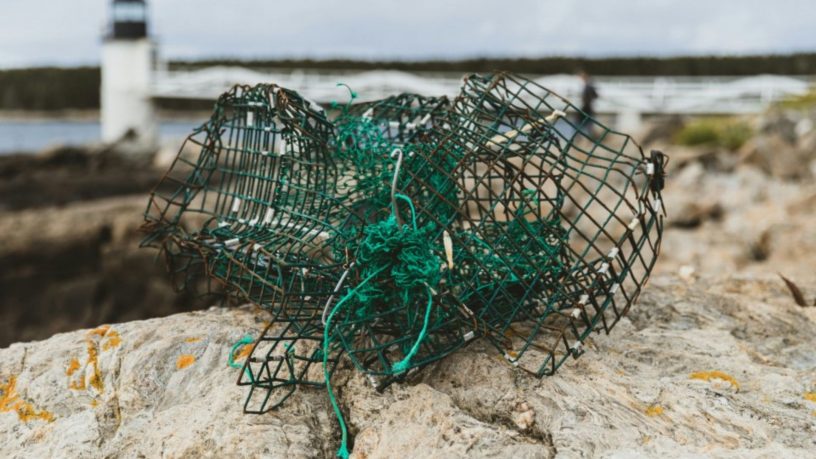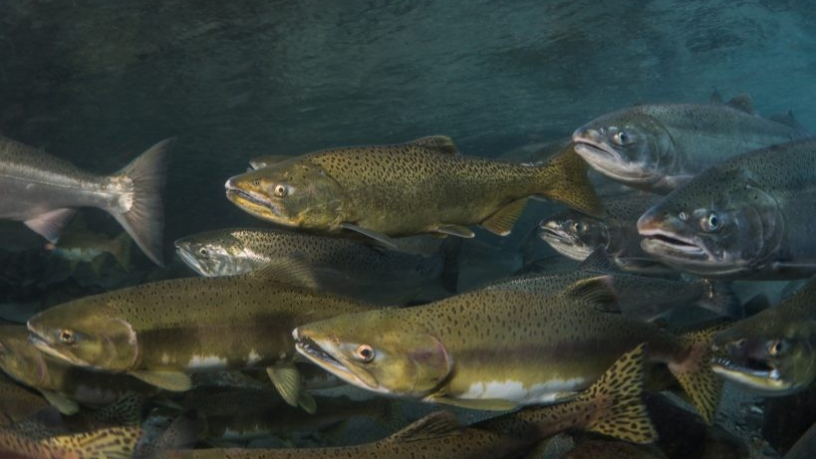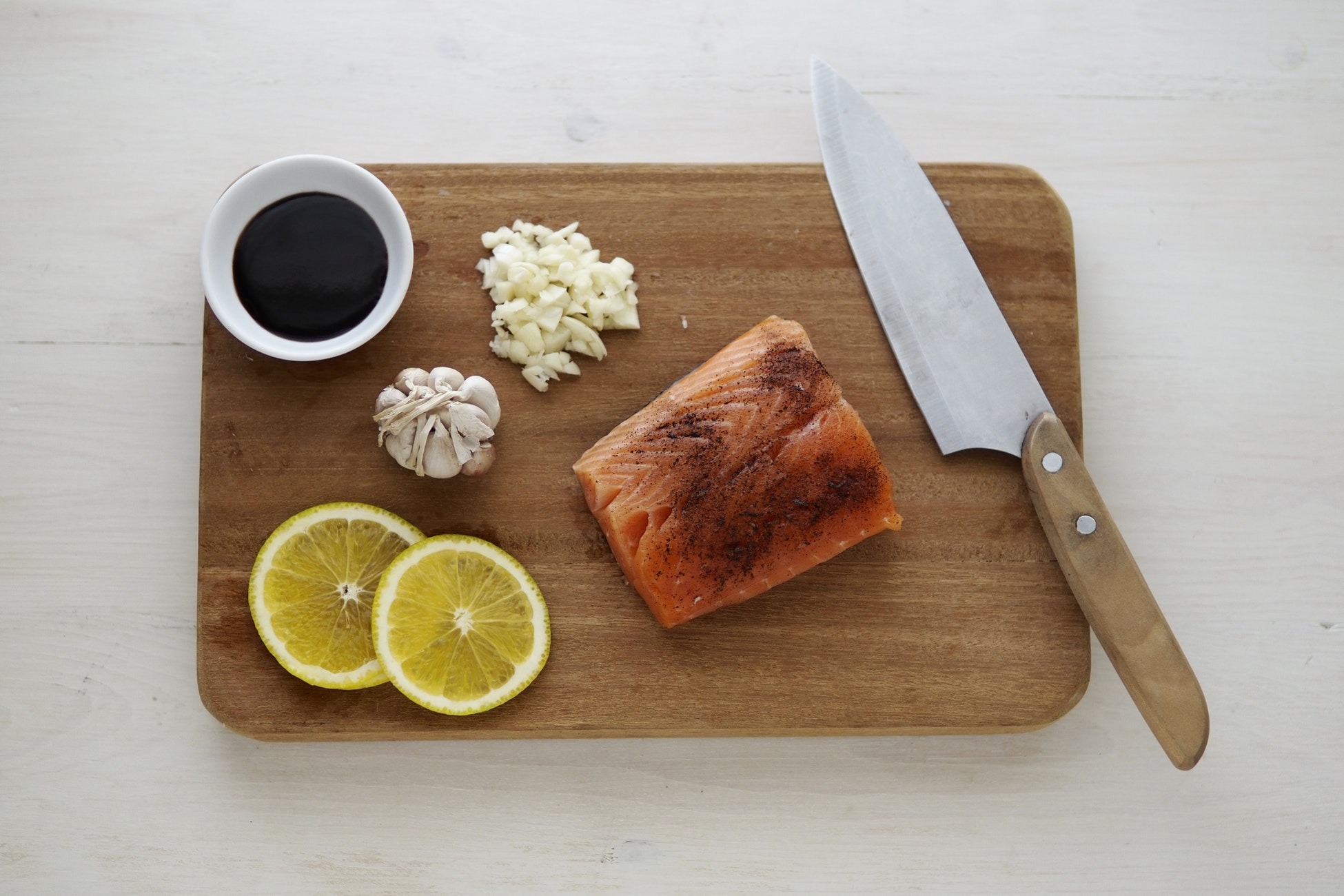
To Eat or Not to Eat Farmed Fish?
“Is this fish farmed or wild?”
Restaurant servers often field this question from diners, who are quickly reassured that the fish they’re about to consume is indeed wild. But why are wild fish considered superior to farmed? Is wildness a measure of seafood quality?
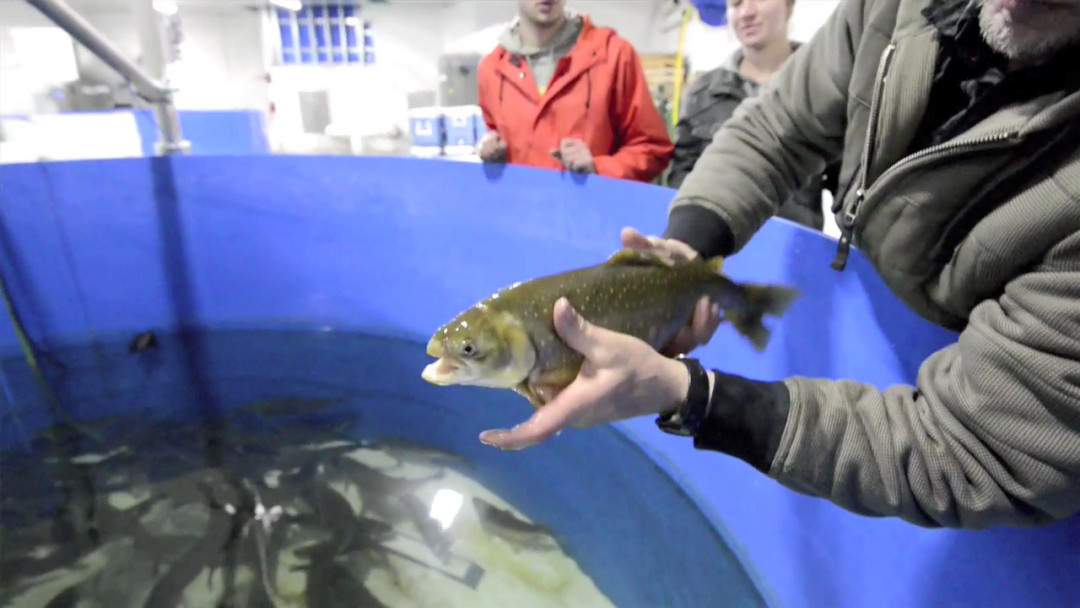
Many of us have a knee-jerk negative responses to Atlantic salmon raised in open net pens along the Pacific Northwest coast. Open net pen farmed Atlantic salmon is not recommended by Ocean Wise, but we believe it is important to understand what makes a sustainable fish farm on a rational, rather than emotional, level. Many ethical eaters refuse to eat a farmed fish, but they will eat farmed chicken and vegetables despite the fact that all types of farming have at least some environmental impact. Examining what makes a farm unsustainable is the first step to grasping why sustainable fish farming is recommended by Ocean Wise. There is very little conversation about what a sustainable fish farm looks like and very little backlash against unsustainable wild fisheries, compared to the backlash against unsustainable fish farms.
First, let’s consider the main challenges around farming fish in the ocean, including escapes, chemical usage and parasites. Since Atlantic salmon is a non-native species, escaped fish could compete with native Pacific salmon for habitat, prey, spawning areas, and other resources. As for chemicals, Atlantic salmon can get sick, necessitating antibiotics like any other animal. The open nature of fish farms allow antibiotics to flow into the ocean. This is a concern as it could build antibiotic resistance, which could lead to situations where antibiotics no longer work for human treatment. The open net pens could also allow for parasites, such as sea lice, that infect passing wild salmon. Parasites are a normal occurrence in wild fish populations, but there are concerns that juvenile salmon migrating out to sea past the farms would be especially vulnerable to heavy lice loads due to their smaller size.
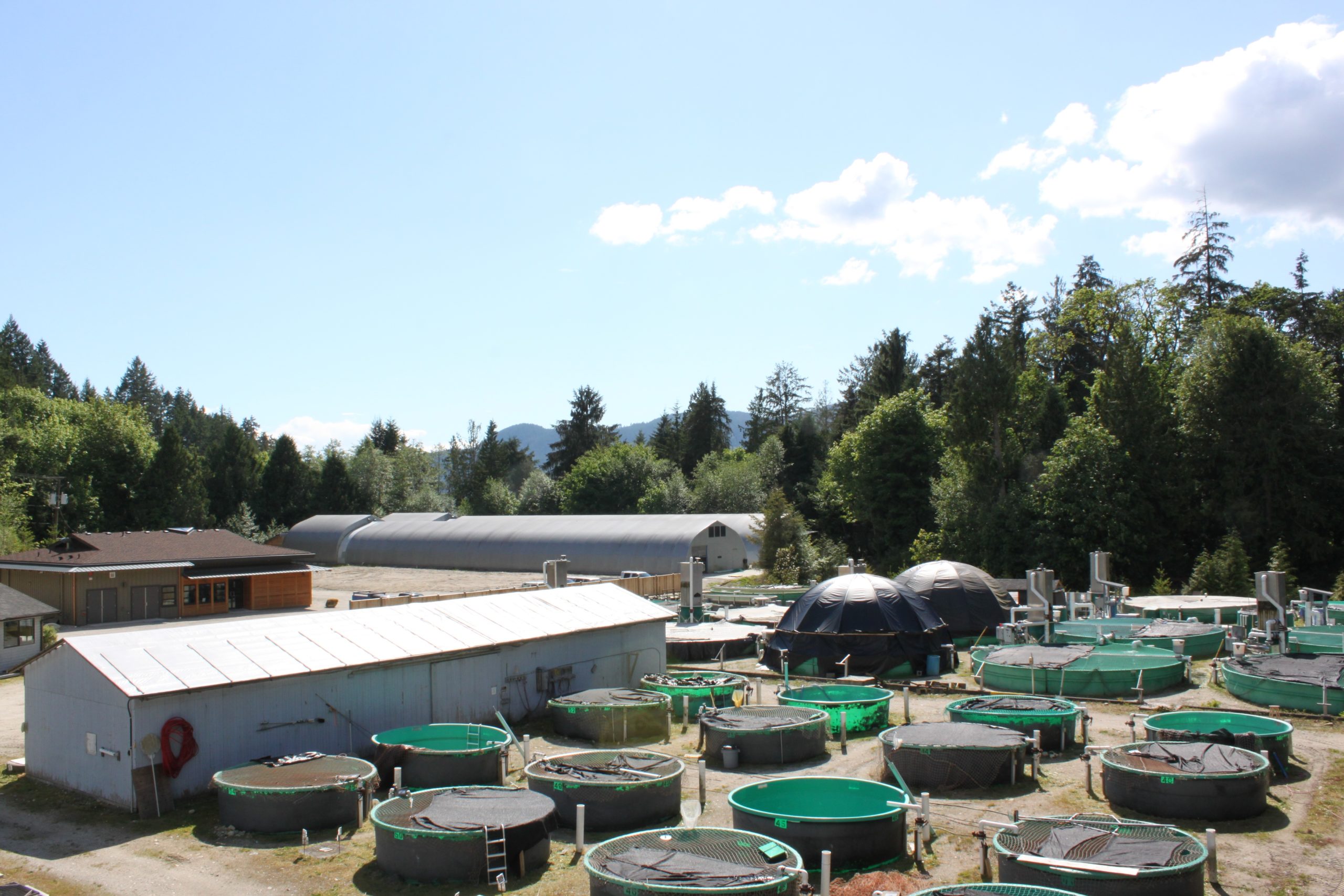
Given the issues around open net pens, land-based recirculating aquaculture systems (RAS) make a lot of sense. Escapes are unlikely, especially when farms handling eggs or smolt have barriers in place. Bio-security measures and control over water quality on the farm avoid disease outbreaks. As such, chemicals such as antibiotics are rarely or never used. The waste water is treated and recirculated through the farm so untreated effluent containing any undesirable substances does not reach the ocean.
Ocean Wise partners with a number of RAS farms that raise Atlantic salmon, Pacific salmon, white shrimp, tilapia, rainbow trout, halibut, white sturgeon, and Atlantic sturgeon. One often-overlooked perk of sustainable farming is the steady supply of seafood year-round. Here are a few Ocean Wise-recommended farms and brands:
- West Creek Coho allows high-volume retailers and restaurants to keep an item such as Pacific salmon on the menu year-round instead of relying on wild seasonal availability.
- Little Cedar Falls makes sustainable steelhead easy to access as there are no wild commercial steelhead fisheries in BC.
- In Oliver, BC, Road 17 raises Arctic char, a northern fish that is unavailable to most southern Canadians.
- Sturgeon farms Northern Divine and Acadian Sturgeon relieve pressure on many severely over fished (and frequently poached) wild sturgeon populations such as beluga and ossetra sturgeon,whose numbers have been drastically reduced by global demand for caviar.
- Berezan Shrimp, Planet Shrimp and First Ontario Shrimp are a great alternative to imported shrimp raised in traditional ponds with illegal use of chemicals and supply chains that can conceal human rights abuses. (Such shrimp farms are not Ocean Wise recommended.)
- S & Bee raises tilapia without chemicals and supplies the local live fish market.
RAS farms are just the tip of the iceberg when it comes to sustainable aquaculture. Shellfish farms, submersible net pens, and certain shrimp silvofisheries are other sustainable operations. The Ocean Wise seafood program highlights the best seafood options with our logo and makes it easy to identify ocean-friendly seafood. Let’s not forget that this includes not just sustainable wild fisheries, but also farms.
Claire Li is Ocean Wise Seafood Program’s Account Representative.
Posted May 31, 2018 by Ocean Wise
